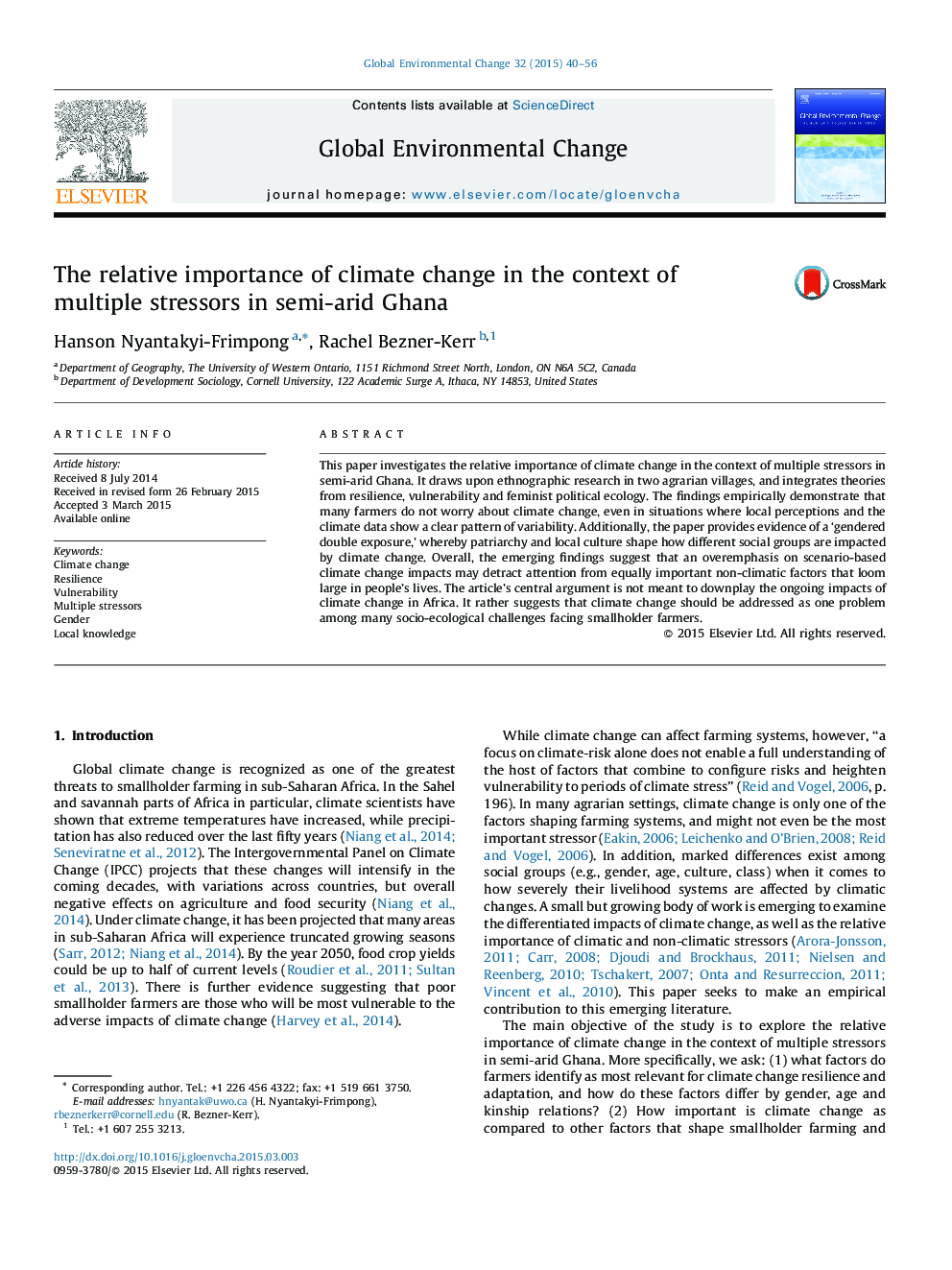| Article ID | Journal | Published Year | Pages | File Type |
|---|---|---|---|---|
| 7469965 | Global Environmental Change | 2015 | 17 Pages |
Abstract
This paper investigates the relative importance of climate change in the context of multiple stressors in semi-arid Ghana. It draws upon ethnographic research in two agrarian villages, and integrates theories from resilience, vulnerability and feminist political ecology. The findings empirically demonstrate that many farmers do not worry about climate change, even in situations where local perceptions and the climate data show a clear pattern of variability. Additionally, the paper provides evidence of a 'gendered double exposure,' whereby patriarchy and local culture shape how different social groups are impacted by climate change. Overall, the emerging findings suggest that an overemphasis on scenario-based climate change impacts may detract attention from equally important non-climatic factors that loom large in people's lives. The article's central argument is not meant to downplay the ongoing impacts of climate change in Africa. It rather suggests that climate change should be addressed as one problem among many socio-ecological challenges facing smallholder farmers.
Related Topics
Life Sciences
Environmental Science
Environmental Science (General)
Authors
Hanson Nyantakyi-Frimpong, Rachel Bezner-Kerr,
